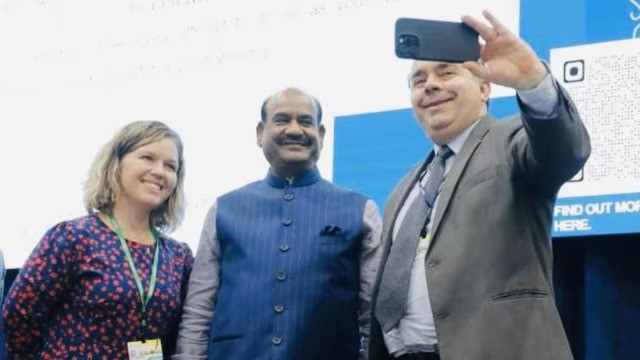
Om Birla: AI Systems Enhancing Efficiency in Parliamentary Processes

 :
| Updated On: 10-Oct-2025 @ 1:07 pm
:
| Updated On: 10-Oct-2025 @ 1:07 pmSHARE
Lok Sabha Speaker Om Birla recently emphasized the transformative potential of artificial intelligence (AI) in enhancing governance and parliamentary processes, stressing the importance of its responsible and ethical use. Speaking at the 68th Commonwealth Parliamentary Association (CPA) Conference held in Barbados, Birla highlighted how AI can act as a powerful tool for strengthening democracy by empowering citizens, improving transparency, and making governmental processes more accountable. He underscored that while AI offers immense opportunities, its adoption must be guided by principles of ethics, responsibility, and inclusivity to ensure that technology serves the broader public good rather than deepening inequalities or compromising privacy.
Birla’s remarks came during a workshop where discussions centered on the role of emerging technologies in legislative and parliamentary systems worldwide. By highlighting India’s experiences, he illustrated how AI is being effectively integrated into parliamentary functions, not merely as a technological upgrade but as a catalyst for enhancing inclusivity and efficiency in governance. He noted that AI tools are enabling better access to legislative data, improving communication between citizens and representatives, and facilitating informed decision-making. These applications have helped streamline parliamentary proceedings, reduce bureaucratic delays, and ensure that legislative processes are more transparent and participatory.
One of the key points Birla stressed was the ability of AI to empower citizens. By providing tools for data analysis, monitoring government performance, and ensuring access to critical legislative information, AI can help people engage more meaningfully with democratic institutions. Citizens can better understand policies, track implementation outcomes, and hold governments accountable. This aligns with broader democratic principles, where informed participation by the public is essential to effective governance and social equity. Birla emphasized that such empowerment would not only strengthen the relationship between citizens and legislators but also foster trust in democratic institutions.
Birla also highlighted India’s progressive approach in adopting AI within its parliamentary system. India has implemented AI-driven solutions to improve legislative research, assist lawmakers in analyzing bills and policy proposals, and provide insights into public opinion and policy impact. AI technologies have been employed to make proceedings more accessible through real-time translations, summaries, and analytics, ensuring that parliamentary work is understandable and inclusive for both lawmakers and citizens. By leveraging AI in these ways, India has set an example of how technology can be harnessed to modernize governance while adhering to ethical standards and democratic values.
In addition to its utility in parliamentary functions, Birla pointed out that AI can enhance policy planning, monitoring, and evaluation, helping governments make more data-driven and evidence-based decisions. He stressed that while the technology holds transformative potential, it must be deployed with safeguards to address concerns around privacy, bias, and misuse. Responsible adoption involves clear regulations, ethical frameworks, and public engagement to ensure that AI contributes positively to society without compromising fundamental rights.
In conclusion, Om Birla’s address at the CPA Conference reflected India’s commitment to integrating AI responsibly into governance structures. His remarks underscored the dual promise and responsibility associated with AI: while it can empower citizens, improve transparency, and enhance parliamentary efficiency, it must be used ethically and inclusively. By sharing India’s strides in leveraging AI, Birla provided a model for other nations seeking to modernize parliamentary processes while ensuring democratic principles are upheld. The discussion highlighted that the successful integration of AI in governance is not merely a technological challenge but a strategic endeavor to strengthen democracy, citizen engagement, and public trust.